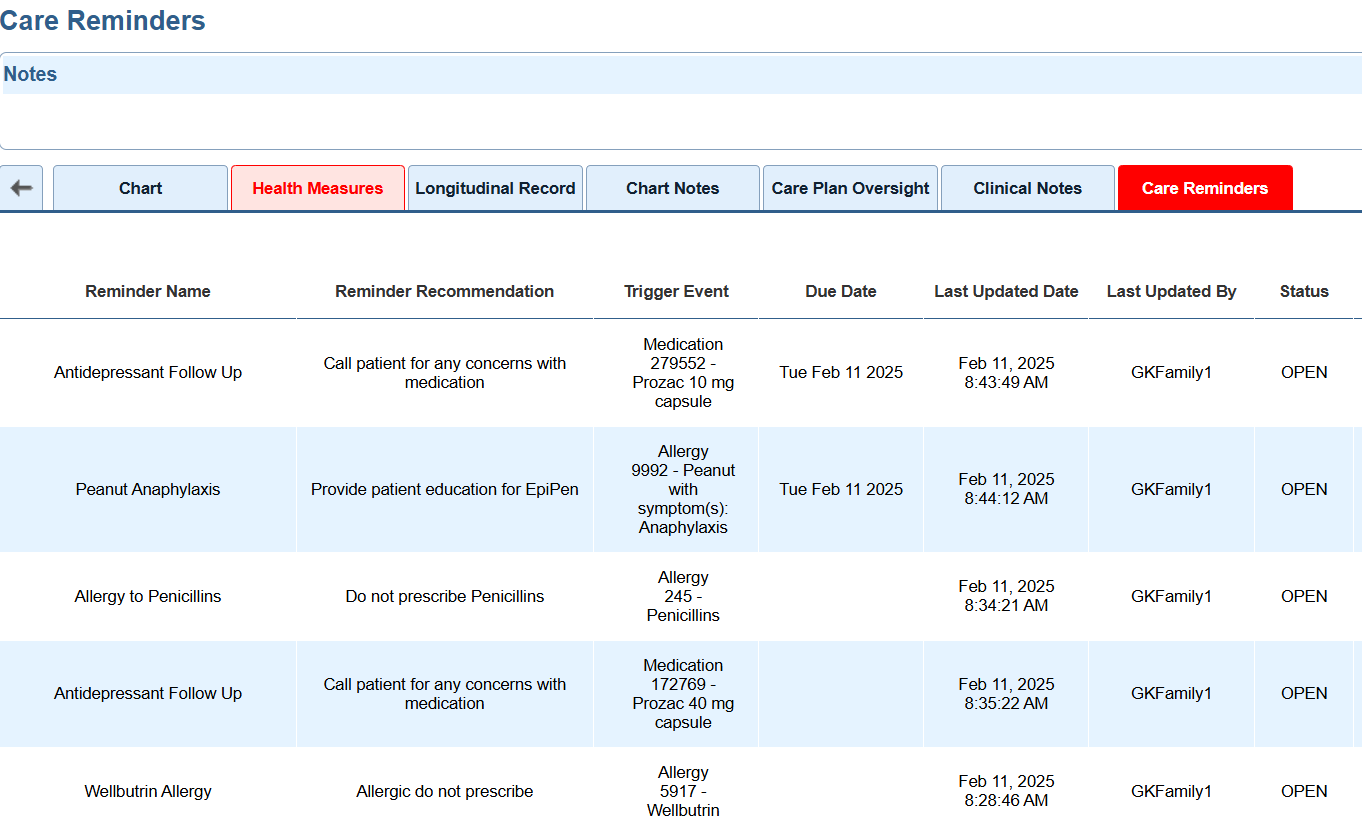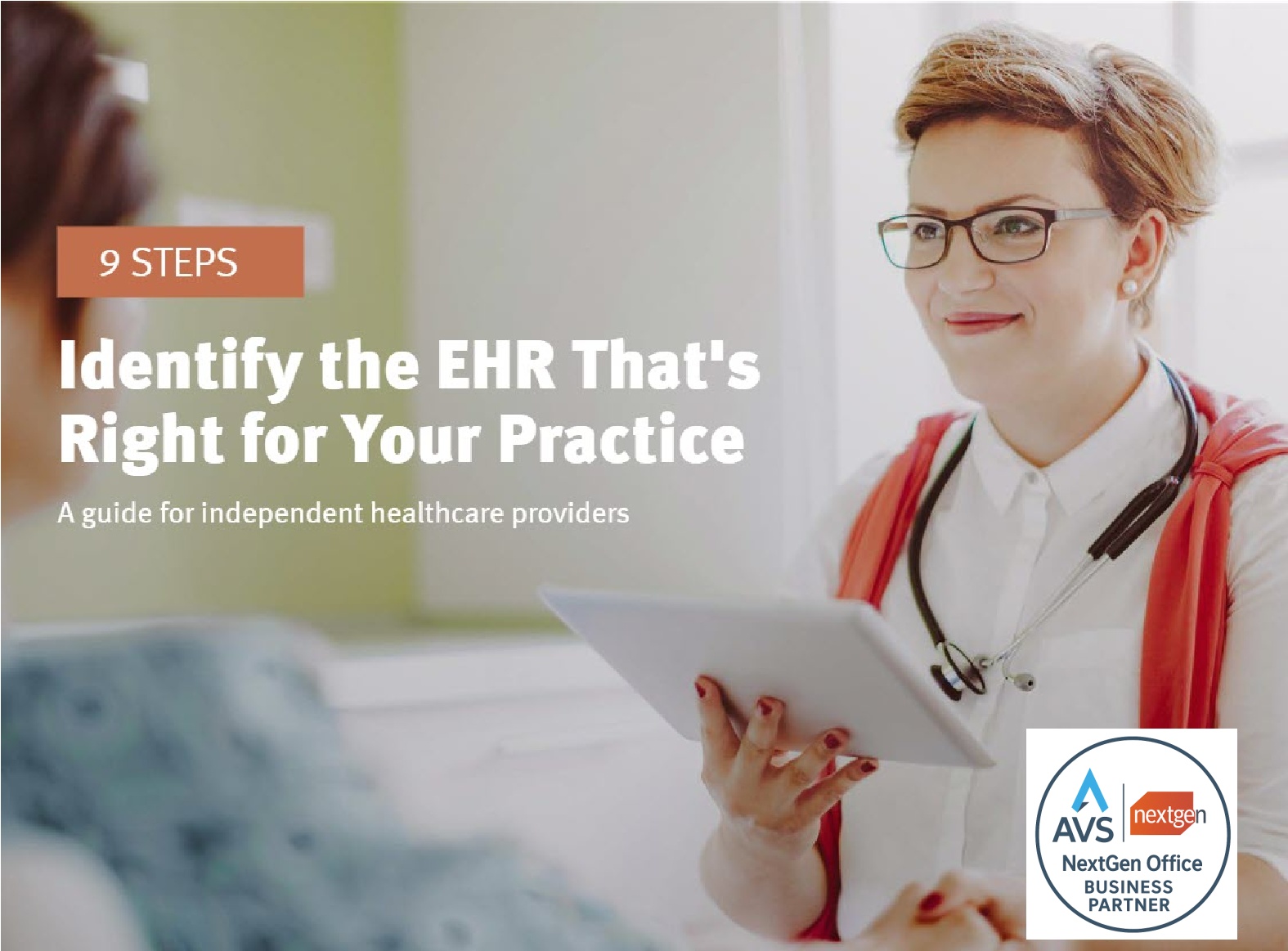Maximizing the Benefits of EHR Systems: What to Look for
Discover the key features to consider when selecting an electronic health record (EHR) system in order to maximize its benefits.
3 min read
AVS Medical : Feb 11, 2025 11:55:10 AM

In today’s fast-paced healthcare environment, managing patient care efficiently is more important than ever. One tool that has revolutionized the way healthcare providers deliver care is the EHR System. Among its many features, care reminders stand out as a vital component that improves patient outcomes, streamlines workflows, and ensures better communication within healthcare teams.
Care reminders in your EHR are reminders that alert healthcare providers to important tasks related to patient care. These tasks could range from scheduling follow-up appointments and preventive screenings to ensuring lab tests are ordered or medications are adjusted. Essentially, care reminders act as gentle nudges that help prevent critical steps in patient care from being overlooked.

Care reminders in EHRs are not just simple prompts—they are integral to the delivery of high-quality, patient-centered care. By ensuring that critical tasks don’t slip through the cracks, these reminders help healthcare providers stay on top of their patients' health needs, improve patient safety, and streamline workflows. In turn, patients benefit from more timely, efficient, and coordinated care, leading to better health outcomes.
Incorporating care reminders into EHR systems represents a powerful step toward a future where healthcare is more precise, efficient, and patient-focused. With the right tools in place, we can work toward a healthier, more well-cared-for population, one reminder at a time.
NEXTGEN OFFICE, a cloud-based EHR, has recently released a new Care Reminders Chart Tab where practices can now set up and create their preferred rules for their Patient's Care Reminders
The new chart tab allows several customizable Rule Creation Options
-Allergy with or without reaction triggers on Allergy list or imported from CCDA
-Implantable Device triggers on Device ID or Unique Device ID from surgical hx
-Medication triggers on medication prescribed or imported from CCDA
-Problem triggers on SNOMED in Problems list or imported from CCDA
-Procedures triggers on CPT used during encounter
-Vital Signs triggers on values entered in Vital Signs
-Lab Result triggers on LOINC and result value
-Lab Order triggers on LOINC
The ultimate goal of any healthcare provider is to improve the health of their patients, and care reminders play a direct role in achieving this. These reminders help ensure that patients receive the right care at the right time. For example, if a patient is due for a routine checkup, a reminder ensures that the physician schedules the appointment, preventing avoidable health issues down the line. Whether it’s managing chronic conditions, utilizing Decision Support Intervention or ensuring preventive care is completed, reminders help reduce the likelihood of missed care opportunities, leading to better health outcomes.
Care reminders help to streamline the workflow in busy healthcare settings. With the increasing complexity of patient care, keeping track of every necessary action can be a daunting task. EHR systems with care reminders ensure that healthcare providers don’t have to rely solely on their memory to track patient needs. Automated reminders free up cognitive space, allowing providers to focus more on patient interaction and decision-making, rather than administrative tasks. This, in turn, reduces the chances of errors or oversights and boosts overall clinic efficiency.
Care reminders play a significant role in ensuring patient safety. Whether it’s flagging potential drug interactions, reminding providers about necessary lab work, or ensuring important screenings (like mammograms or colonoscopies) are performed, these reminders reduce the risk of missed care and prevent dangerous health lapses. Patient safety is a top priority, and having a system in place that helps providers stay on top of their patients' needs is a major step toward achieving this goal.
Care reminders also help healthcare providers adhere to clinical guidelines and best practices. Whether it’s following up on vaccinations, screening for certain cancers, or adjusting a medication regimen, these reminders help providers stay aligned with the latest clinical recommendations. This improves the consistency and quality of care and ensures that all patients receive the most up-to-date treatments and interventions based on evidence-based medicine.
In multi-disciplinary healthcare teams, effective communication is essential. Care reminders help improve communication between different providers, departments, and even care settings (e.g., primary care, specialists, and hospital teams). They ensure that everyone involved in the patient's care is on the same page, reducing gaps and fragmentation in care. If a patient has a follow-up appointment with a specialist, for example, the primary care provider may receive a reminder to coordinate that appointment, ensuring seamless continuity of care.
Care reminders aren't just for healthcare providers—they can also be shared with patients. Automated reminders can be sent to patients regarding upcoming appointments, preventive screenings, or follow-up tests. This proactive communication helps improve patient engagement and encourages individuals to take responsibility for their health. By keeping patients informed and reminding them of the importance of staying on top of their care, providers foster greater adherence to prescribed treatments and health maintenance.
In addition to enhancing care delivery, care reminders also support proper documentation and compliance. Healthcare providers can use the reminders to track whether specific actions have been completed, which provides a thorough record of care provided. This is particularly important for billing, insurance claims, and legal matters. Having a system that keeps detailed records ensures that healthcare practices remain compliant with regulatory standards, reducing the risk of audits or potential legal issues.
NextGen Office is a Cloud-Based EHR that offers solutions to practices for many common PM and EHR problems, including utilizing Care Reminders in your EHR.

Discover the key features to consider when selecting an electronic health record (EHR) system in order to maximize its benefits.

Healthcare delivery is changing rapidly. Patients expect convenience, providers need efficiency, and practices must balance clinical and financial...

NextGen® Office is Only EHR to Empower Podiatrists with Community Data at Point of Care